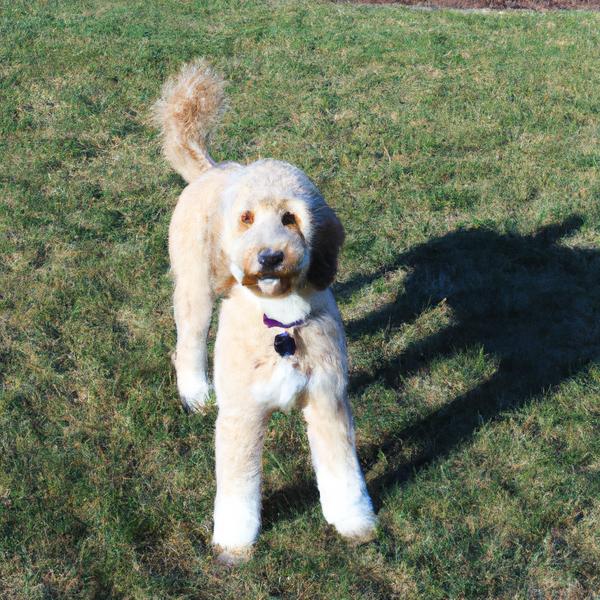Flandoodle vs. Husker: Breed Differences and Similarities
Hypoallergenic
Are Flandoodles or Huskers hypoallergenic, or neither?
While no dogs are truly 100% hypoallergenic, Flandoodles are about as close as it gets, making them an ideal pet if you are an allergy sufferer.
Unfortunately, the Husker is not hypoallergenic, making it not a good choice for a dog lover who suffers from pet allergies.
Temperament
What are the personalities of Flandoodle and Husker dogs?
Active
Protective
Alert
Intelligent
Loyal
Gentle
Trainable
Faithful
Familiar
Rational
Instinctual
Playful
Energetic
Alert
Intelligent
Confident
Friendly
Outgoing
Loyal
Gentle
Fearless
Brave
Bright
Shedding Level
Do Flandoodles shed more than Huskers, or which breed sheds more, Flandoodles or Huskers?
Flandoodles are low shedding dogs, requiring minimal coat care.
Huskers are heavy shedders, but regular brushing can help manage shedding and promote a healthy coat.
Ancestry
What are the origins of Flandoodle and Husker breeds?
Poodle, Bouvier des Flandres
Siberian Husky and Boxer
Date of Birth
When were Flandoodle and Husker breeds first developed?
1990s
Unknown
Eye Color Possibilites
What are the eye colors of Flandoodle and Husker dogs?
Hazel
Brown
Blue
Brown
Nose Color Possibilites
What are the natural nose colors of Flandoodle and Husker?
Black
Black
Coat Color Possibilites
What are the natural colors of the coat for Flandoodle and Husker breeds?
Brown
Black
White
Gray
Red
Blue
Black
Gray
White
Brown
Fawn
Coat Length
What is the typical coat length for Flandoodle and Husker breeds?
Flandoodles have longer coats compared to most dogs.
Huskers have medium-length coats.
Coat Density
What is the density of the coat of Flandoodle and Husker?
Coat Texture
What is the hair texture of Flandoodle and Husker?
Curly
Straight
Litter Size
What is the usual litter size for Flandoodle and Husker?
A Flandoodle can have a litter of 5-10 puppies on average. However, it's worth noting that the size of the litters can vary greatly. Factors that can influence litter size include the health of the mother, breeding history, and genetics.
A Husker can have a litter of 2-10 puppies on average. However, it's worth noting that the size of the litters can vary greatly. Factors that can influence litter size include the health of the mother, breeding history, and genetics.
Adaptability
Flandoodle and Huskers are known for their adaptability and versatility. They are capable of adapting well to a wide range of lifestyle changes and living environments, making them great companions for families and individuals of all lifestyles.
Health Issues
Between Flandoodle and Husker, which breed is more prone to health problems?
Flandoodle and Husker breeds are generally considered to be healthy. However, like all breeds, they are susceptible to certain health issues and it is important to keep an eye out for them and address them with your veterinarian as needed.
Major Concerns
What are the major health concerns for Flandoodle and Husker breeds?
Sebaceous Adenitis
Hip Dysplasia
Gastric Dilation Volvulus
Hip Dysplasia
Minor Concerns
What minor health issues should be kept in mind when owning Flandoodle and Husker?
Cataracts
Glaucoma
Megaesophagus
Laryngeal Paralysis
Cancer
Corneal Dystrophy
Canine Glaucoma
Occasional Tests
What occasional tests are recommended for Flandoodle and Husker breeds?
X-Rays
MRI
CT Scan
Eye Examination
Skin Evaluation
Ultrasound
Urinalysis
Blood Tests
X-Rays
Eye Examination
Physical Examination
Blood Tests
Social Needs
Flandoodle vs Husker social needs comparison
Flandoodle and Husker have above average social needs compared to other breeds. They thrive in environments where they have a lot of interaction with humans and other dogs.
Sleeping Need
Which of the two sleeps the most/least: Flandoodle or Husker?
Flandoodles sleep less than other breeds but still need adequate sleep for good health.
Huskers are active and require sufficient sleep to stay healthy.
Mouthiness
Mouthiness Comparison: Flandoodle vs Husker?
Roaming urge
Flandoodle vs Labrador: Running away tendency?
Prey Drive
Flandoodle or Husker - which breed has a higher level of prey drive?
Activity Level
Which breed has higher energy, Flandoodles or Huskers?
Flandoodle and Husker are high-energy dogs that require a lot of mental and physical exercise. Without proper stimulation and attention, these breeds can become problematic. If you're considering these breeds, be prepared to invest time and effort in their exercise and training.
Tolerance of being left alone
Walks per Week
How many miles should Flandoodle or Husker walk each week?
There's really no limit to how far you walk your dog as long as they're comfortable. For Flandoodle, it's at least 11 miles / week. Just remember to build distance and stamina gradually over time.
There's really no limit to how far you walk your dog as long as they're comfortable. For Husker, it's at least 15 miles / week. Just remember to build distance and stamina gradually over time.
Activity per Day
Do Flandoodles or Huskers require more exercise?
In general most Flandoodles usually need at least 90 minutes of exercise daily. This can be spread across the day and include all sorts of high-energy activities, like walking, running and playing.
In general most Huskers usually need at least 70 minutes of exercise daily. This can be spread across the day and include all sorts of high-energy activities, like walking, running and playing.
Grooming
Which breed is easier to maintain in terms of grooming, Flandoodles or Huskers?
Flandoodles have high grooming needs, requiring regular trims and professional grooming assistance to keep their coat healthy.
The Husker has low grooming needs and is easy to maintain.
Brushing Frequency
What is the recommended brushing frequency for Flandoodle and Husker dogs?
Ideally, both Flandoodle and Husker should be brushed at least 2 or 3 times a week (preferably daily) to improve shedding.
Brushing Tools
What brushing tools are used for Flandoodles and Huskers?
Pin Brush
Slicker Brush
Nail Clipper
Slicker Brush
Deshedder
Nail Clipper
Cups
How much food should be given to Flandoodle or Husker in cups?
For an average 65-85 pound (29 - 39 kg) Flandoodle feed 3 cups daily. But, keep in mind, the amount you feed is going to be dependent on the quality of the food you are feeding.
For an average 35-71 pound (16 - 32 kg) Husker feed 3.5 cups daily. But, keep in mind, the amount you feed is going to be dependent on the quality of the food you are feeding.
Daily Cost
Which breed has a higher daily cost, Flandoodle or Husker?
The average cost of a Flandoodle is somewhere $2.80 - $4.20 per day.
The average cost of a Husker is somewhere $2.10 - $2.80 per day.
Monthly Cost
Which breed has a higher monthly cost, Flandoodle or Husker?
The average per month expenses of a Flandoodle is between $84 - $126. This makes an average of $1008 - $1512 per year. It will be on the higher side when the dog is still small because it will need more frequent visits to the vet, shots.
The average per month expenses of a Husker is between $63 - $84. This makes an average of $756 - $1008 per year. It will be on the higher side when the dog is still small because it will need more frequent visits to the vet, shots.
Sensitivity Level
How do Flandoodle and Husker compare in sensitivity?
These breeds are more sensitive than others and easily overwhelmed by new surroundings and people. Flandoodle and Husker need gentle handling and a calm, stable home environment with positive reinforcement training.
Apartment Friendly
Which breed is more apartment-friendly: Flandoodle or Husker?
Flandoodles and Huskers are dogs that do well in apartments with sufficient exercise, but they would really appreciate a small yard.
Child Friendly
Do Flandoodles or Huskers have a friendlier temperament towards children?
Flandoodles make excellent family pets for kids due to their gentle, protective nature and calm temperament.
Huskers are good with kids if socialized and trained from a young age.
Senior-friendly
Which dog is more suitable as a pet for the elderly - Flandoodle or Husker?
Cat Friendly
Do Flandoodle or Husker breeds have a better compatibility with cats?
Flandoodles are good with cats, but early training is needed to prevent chasing behavior.
Huskers are somewhat cat friendly and can be trained to get along with cats.
Dog Friendly
Which breed is more sociable with other dogs: Flandoodle or Husker?
Flandoodles and Huskers are friendly, active and loyal companions. They generally love to be around other dogs, making them a good family pet for some.
Pet friendly
How do Flandoodle or Husker dogs interact with other pets?
Stranger Friendly
Which breed is more friendly with strangers: Flandoodle or Husker?
Flandoodle and Husker are average friendly around strangers. They can be wary around strangers and a little standoffish, so early socialization is key to ensure they are comfortable around new people.
Playfulness
Which breed is more playful between Flandoodle and Husker?
Flandoodle and Husker are playful dogs. So, no matter how busy the day may get, the best thing you can do for Flandoodle and Husker is to make time each day to play. It can be as little as 15-20 minutes, and it will mean the world to them.
Trainability
How do the trainability levels of Flandoodles and Huskers compare?
Flandoodles are popular for their ease of training and quick learning ability.
Huskers may require more time and patience to learn commands, but with consistency, they can be trained.
Compare Flandoodle with other breeds
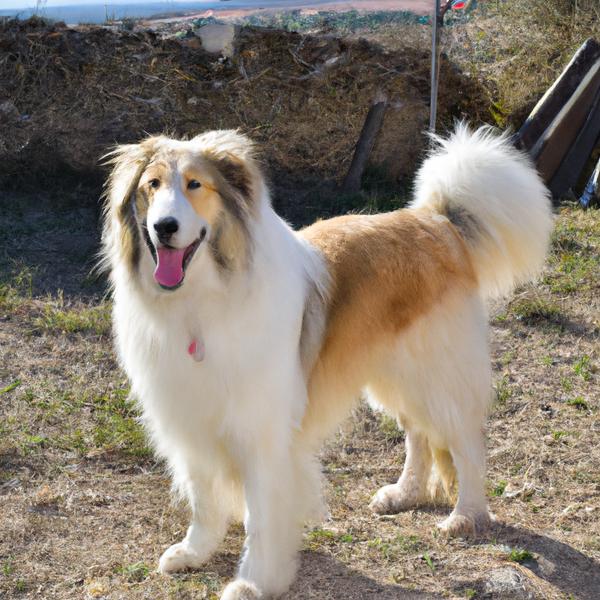
Collie Pyrenees
Flandoodle vs Collie Pyrenees
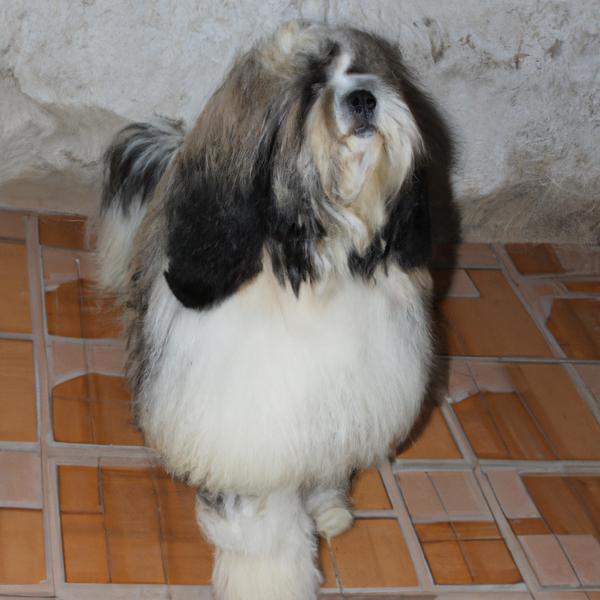
Havachin
Flandoodle vs Havachin

Mini Ratzer
Flandoodle vs Mini Ratzer
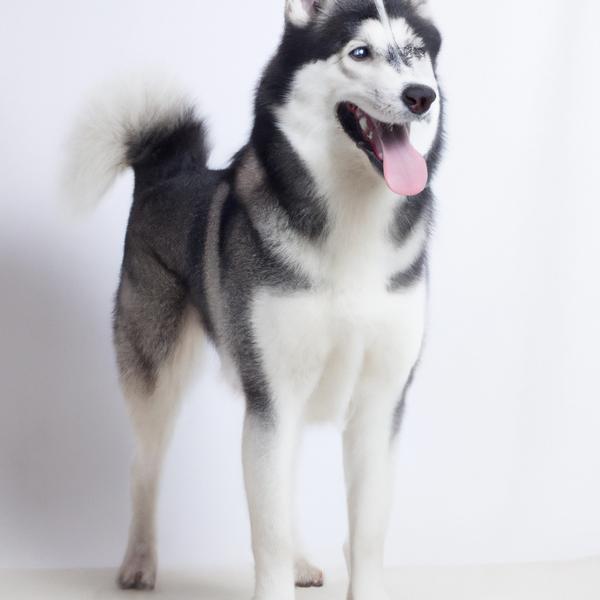
Husker
Flandoodle vs Husker
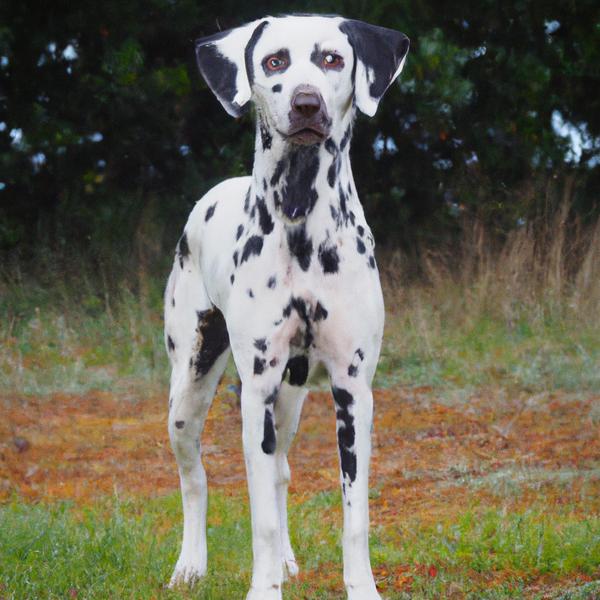
Dalmador
Flandoodle vs Dalmador
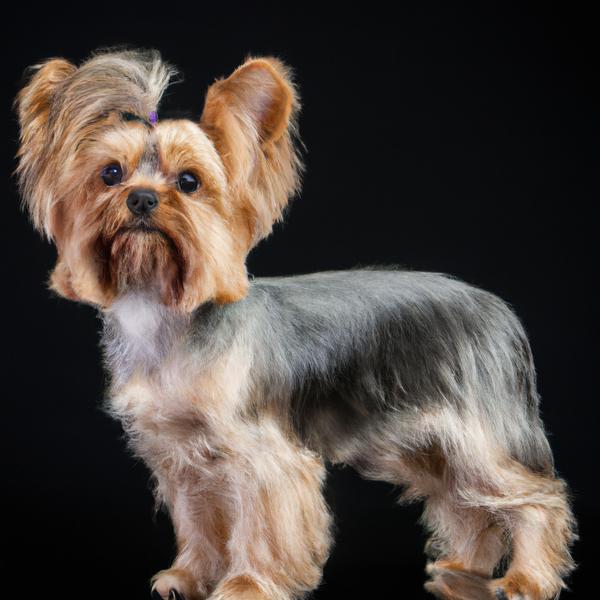
Miniboz
Flandoodle vs Miniboz
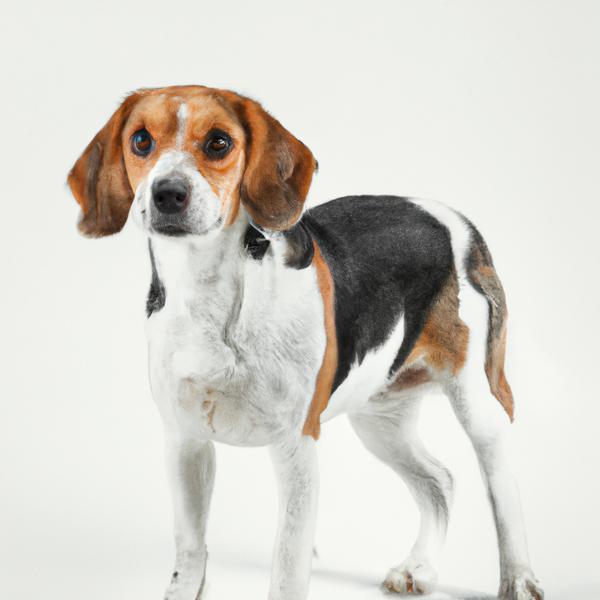
Border Beagle
Flandoodle vs Border Beagle
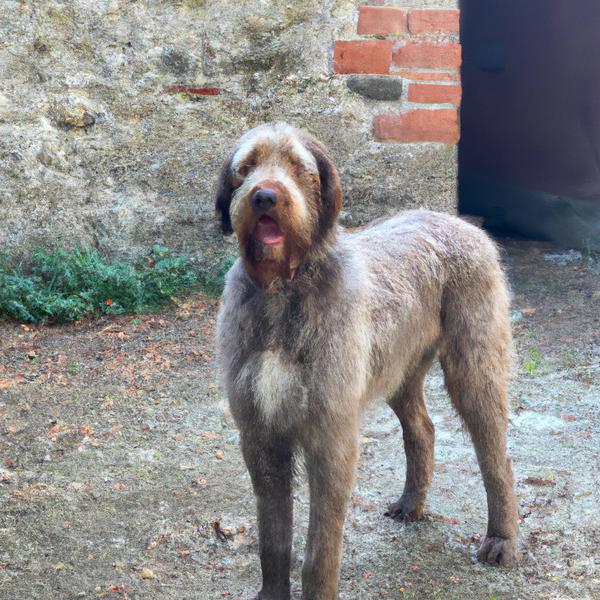
Spinone Italiano
Flandoodle vs Spinone Italiano
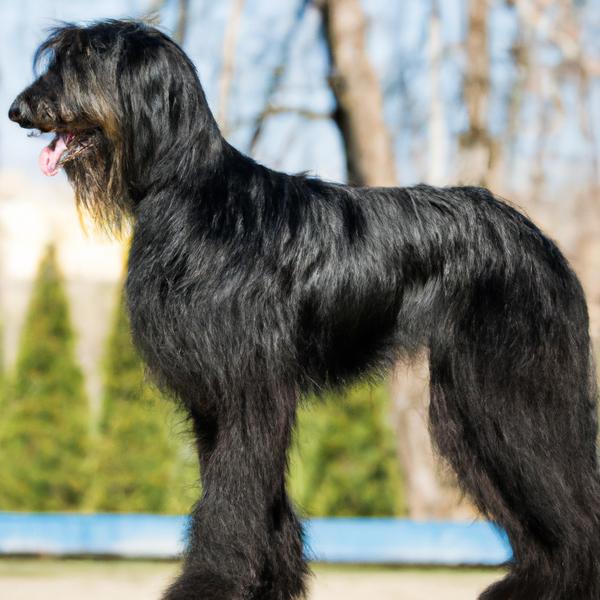
Black Russian Wolfhound Terrier
Flandoodle vs Black Russian Wolfhound Terrier
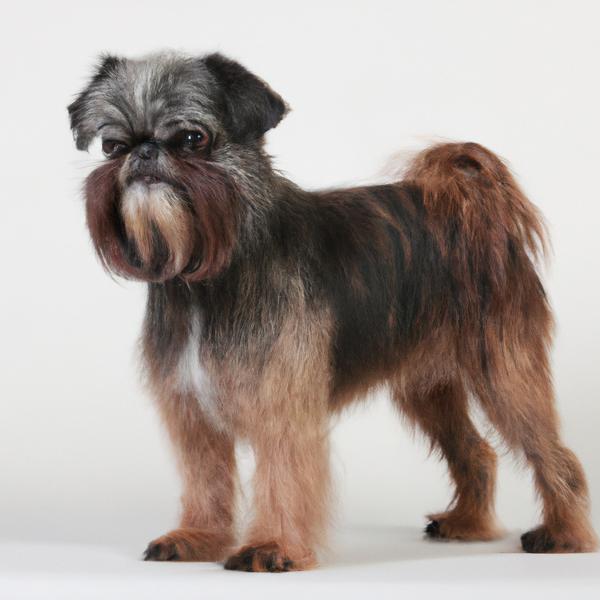
English Toy Griffon
Flandoodle vs English Toy Griffon
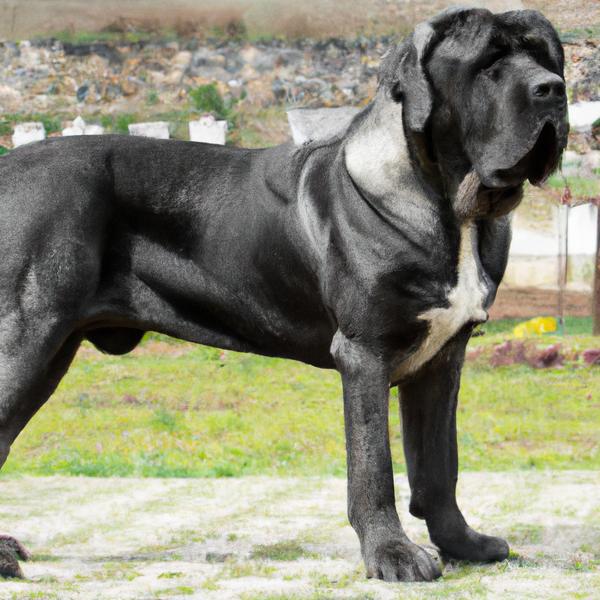
English Mastahoula
Flandoodle vs English Mastahoula

Shug
Flandoodle vs Shug
